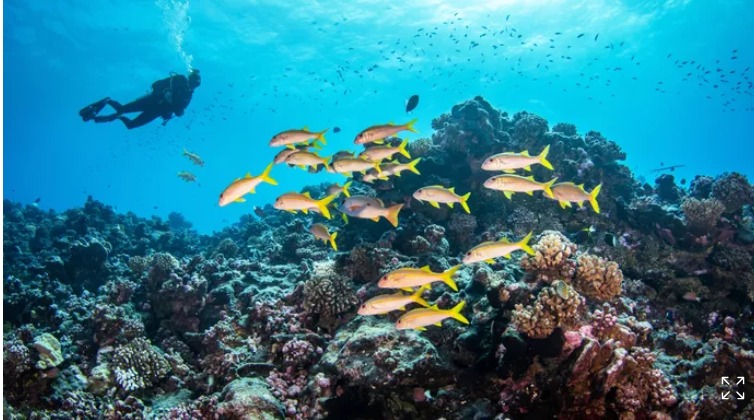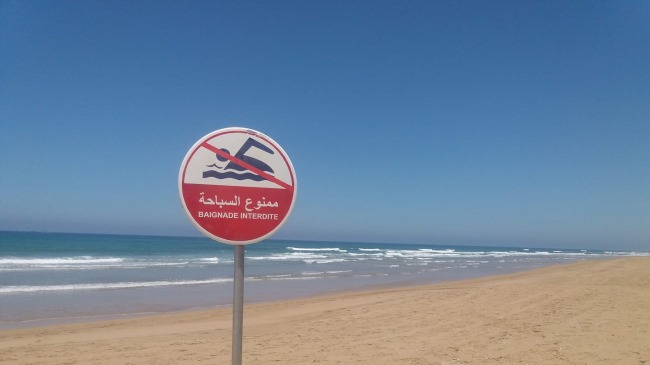In June, France will host the third United Nations Ocean Conference. However, at the same time, the country is doing less than its neighbors to protect its seabeds and marine biodiversity, warn over sixty scientists and environmental experts, including Pascal Lamy and Camille Etienne.
As France prepares to host the third United Nations Ocean Conference (UNOC-3) in Nice in June 2025, and just days before the international SOS Ocean Summit, one fact stands out: our country, the second-largest maritime domain in the world, is far from being a model when it comes to ocean protection. It is indeed following a policy contrary to the recommendations of the scientific community and bypassing international and European standards.
France claims to protect over 33% of its maritime area through marine protected areas (MPAs). However, very often, these MPAs are only « protected » in name. 80% of these MPAs impose no regulatory difference between the inside and the outside. While it is established that fishing is the main cause of marine biodiversity loss, bottom trawlers, for example, can fish in many of these MPAs. The French paradox is particularly evident in the country’s goal of protecting 10% of its waters with « strong protection. » This labeling does not meet international standards or European Union recommendations. As of now, it formally does not prohibit any industrial activity or activity that exerts pressure on biodiversity, except for mining and material extraction.
Worse still, to protect the exceptional biodiversity of the Îles Éparses, the government plans to create an MPA covering more than 600,000 km² in the Indian Ocean, without changing existing fishing practices. In this national nature reserve, the highest level of protection in our country, fishing using fish aggregation devices (FADs), a fishing technique that causes significant pressure on marine biodiversity, would be allowed. How can one imagine, under these conditions, that this giant MPA will become the showcase of French policy at UNOC-3 alongside projects in French Polynesia and New Caledonia? These large MPAs must be provided with human, financial, and surveillance resources, and offer protection commensurate with the stakes, excluding the most harmful exploitation practices for marine biodiversity. Another disturbing fact: 94% of our truly protected areas are located far from mainland France, in the French Southern Territories and New Caledonia. An equivalent level of ambition is expected for metropolitan waters. Yet, the most recent scientific studies show that full protection covers only a tiny fraction: 0.1% in the Mediterranean and 0.008% in the Atlantic-English Channel-North Sea. How can such a weakness in the protection of our domestic waters be justified?
The international community will not be fooled and will have its eyes on France in June 2025. The 2022 Kunming-Montreal Agreement on biodiversity sets a clear goal: to protect and manage 30% of marine areas by 2030. The European Union goes further, recommending that one-third of this area (i.e., 10% of European coastal and marine waters) be protected under a « strict protection » regime. In line with international standards, categories I and II of the IUCN, strict protection excludes any extractive activity (recreational or professional fishing, offshore wind energy, mining, etc.). Scientific studies show that marine areas with high and full protection are most likely to provide ecological (larger and more abundant fish, sometimes greater species diversity), economic (increased catches around the protected area, a draw for sustainable tourism), and social (maintaining income for fishermen, developing local economic activities) benefits. Furthermore, by involving stakeholders, MPAs contribute to better ocean governance and increase knowledge of the marine environment.
Our international credibility is at stake, as our European neighbors, such as Greece, the United Kingdom, and Sweden, are already taking concrete actions by banning destructive practices like bottom trawling in their MPAs. The Nice Conference represents a historic opportunity for France to regain leadership in ocean protection. For this, one priority is clear: to make « French » strong protection align with European strict protection and ensure equitable distribution of this protection between metropolitan and overseas waters. Our international credibility is at stake as our European neighbors, such as Greece, the United Kingdom, and Sweden, are already taking concrete actions by banning destructive practices like bottom trawling in their MPAs. France must urgently follow these initiatives and ensure its MPAs are in line with international standards. Otherwise, will we have to resign ourselves to abandoning the term « protected »?
Mr. President, the time for half-measures is over. As the host of UNOC-3, France carries an unprecedented responsibility and opportunity. The stakes go far beyond nature preservation; they concern the future of our societies. Strictly protecting 10% of our waters is to guarantee the health of the ocean, the climate regulator, the largest reservoir of biodiversity on Earth, and our best ally in the fight against climate change and biodiversity loss.



